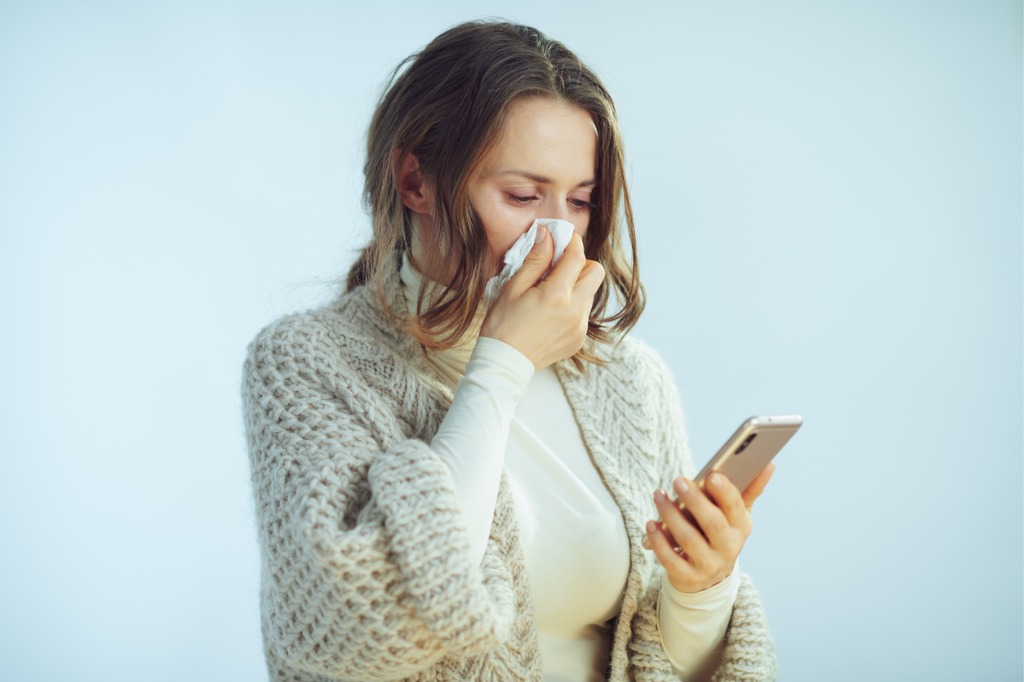
What To Do When Allergy Medicine Doesn’t Work
Has your allergy medicine been falling short? For many people, over-the-counter or prescription allergy medicines are the go-to solutions for those bothersome sneezes, itchy eyes, and persistent runny nose. But if you’re wondering what to do when allergy medicine doesn’t work, there are alternative avenues to explore. To assist you in your mission to find the right course of action, here’s our guide.
Possible Reasons Your Allergy Medication Isn’t Working
Before discussing alternative solutions, it’s important to understand why your current allergy medicine might not be doing its job effectively. A variety of factors can contribute to this less-than-ideal situation, such as incorrect diagnosis, wrong medication choice, or even simple misuse of allergy medicine. Let’s look into these potential reasons and explore what to do when allergy medicine doesn’t work.
Incorrect Diagnosis
Since allergies vary in type and severity, proper diagnosis is key to finding the best course of treatment. Such an assessment should take into account your full medical history as well as potential triggers. If the diagnosis is wrong, the prescribed medication likely won’t work. The best way to combat this issue is to get tested by an allergist and explore all potential sources of your allergies.
Medication Resistance
In some cases, an allergy medicine may have been effective in the past but has since lost its potency. This could be due to medication resistance. This occurs when the body stops responding to medication due to frequent exposure or weakening of its effects. If this is the case, it’s time to switch your allergy medicine and explore other options for controlling allergies. An allergist can provide recommendations on the best medication for you.
Improper Use of Medication
It’s also possible that the allergy medicine isn’t working because it’s not being used correctly. It can be tricky to get the dosage right or understand how long it takes for a medication to kick in, which is why it’s important to read all instructions and follow your doctor’s orders. Nasal sprays or inhalers are common allergy medications, and each one should be used correctly to get the best results. Speak with your doctor for more guidance on how to use allergy medicines correctly.
What To Try Next
Now that we’ve addressed some potential reasons why your allergy medicine might not be working, it’s time to explore alternative solutions. These treatments may help suppress and manage your allergies in a variety of ways. Understanding the following treatment alternatives will help you know what to do when allergy medicine doesn’t work.
Lifestyle Changes
Navigating allergies requires more than medication. Sometimes, simple daily habits and environmental changes can make a significant difference. One of the most effective strategies is practicing avoidance, such as limiting exposure to known allergens by staying indoors during peak pollen times. Your home environment also plays a crucial role. Investing in hypoallergenic pillows, considering the removal of carpets, or adding an air purifier can substantially reduce indoor allergens, making your space a true sanctuary. Being proactive with these adjustments decreases reliance on medications and promotes overall well-being.
Alternative Therapies
There are numerous alternative therapies you can try if standard allergy medications aren’t providing relief. It’s always important to consult with your allergist before starting any new treatment. Remember, what works for one person might not work for another, but exploring the following alternative therapies might be what you need to manage your allergy symptoms.
- Herbal Supplements: Certain herbs have been used to alleviate allergy symptoms. Always consult your allergist, as some herbs can interact with other medications.
- Immunotherapy: This involves slowly exposing your body to small amounts of allergens to build immunity. It can be administered via allergy shots, allergy drops, or under-the-tongue tablets and is particularly effective for those with seasonal allergies.
- Nasal Irrigation: A neti pot or saline spray may help clear your nasal passages of allergens and reduce symptoms.
Consultation With an Allergist
Still wondering what to do when allergy medicine doesn’t work? Don’t lose hope. Feeling out of options and overwhelmed is natural, but there are alternative approaches worth considering. Turning to professionals like those at Northeast Allergy can be a game-changer. With their expertise, you can explore options to best meet your needs and get the relief you deserve.
Take Control of Your Allergies With Northeast Allergy
Discovering the right treatment for allergies can sometimes be a journey of trial and error. At Northeast Allergy, we are committed to helping you get the relief you need and deserve. Our allergists can help diagnose your allergies, pick the right medication, and guide you on alternative therapies that best suit your needs. Don’t let chronic allergies become a major obstacle in your life. Contact us today and learn how we can help you get the allergy relief you’ve been looking for.



